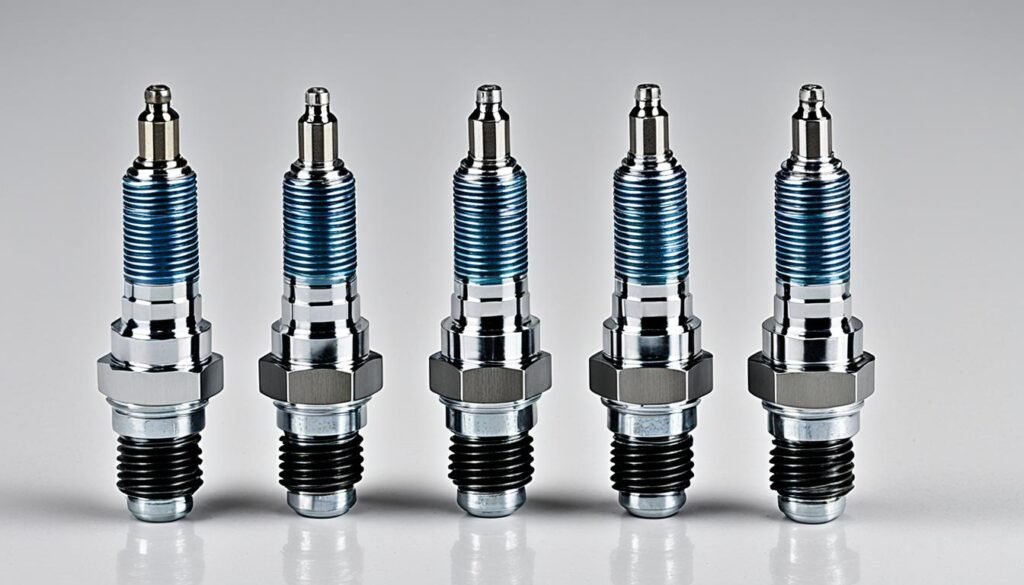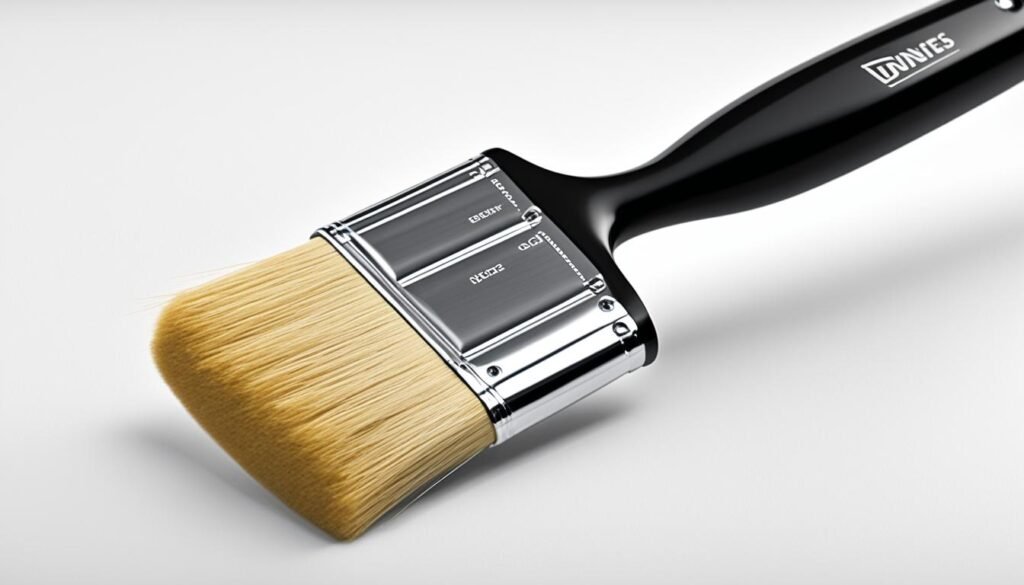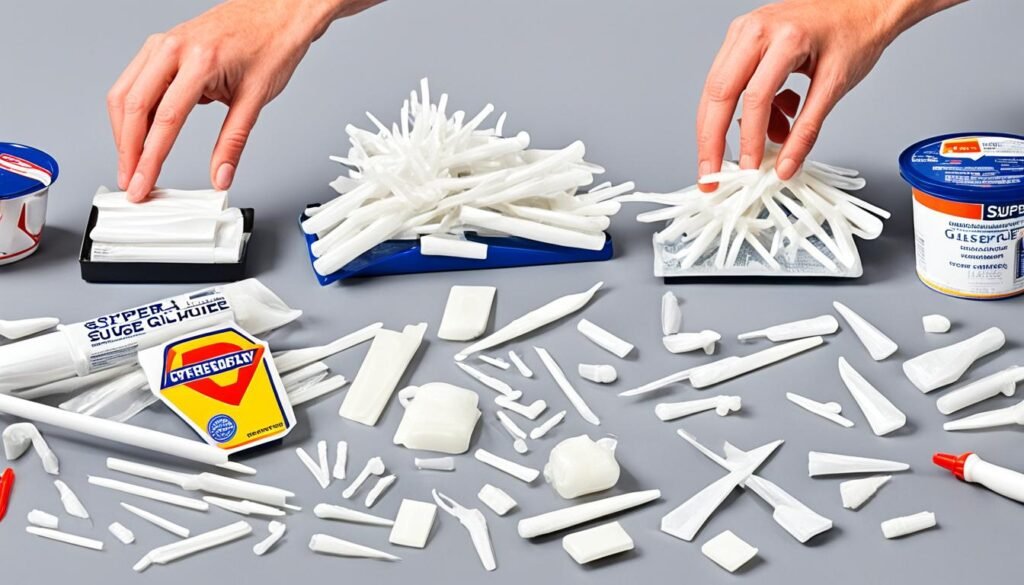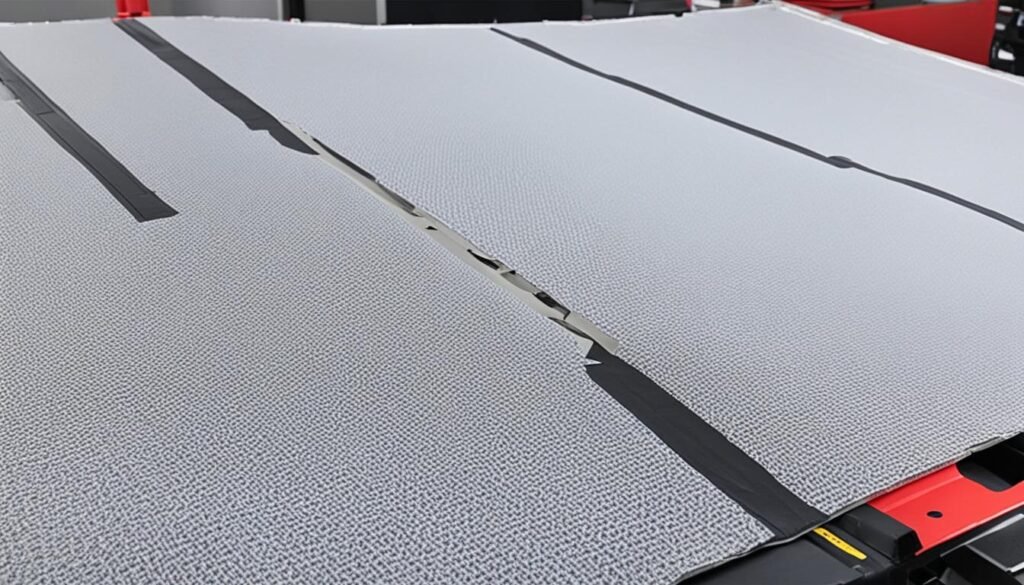Do you want to unlock your engine’s true potential? The secret may lie in the spark plugs powering your ride. Spark plugs play a critical role in the performance and efficiency of an engine, and they are responsible for igniting the air-fuel mixture in the combustion chambr – the heart of an engine’s power. But have you ever wondered what the best spark plugs are for maximum performance?
In this article, we’ll explore the various types of spark plugs, their compositions, and the factors to consider when selecting the optimal spark plugs for your engine. Whether you’re running a high-performance build, a turbocharged beast, or a race-ready machine, the right spark plugs can make all the difference in unlocking your engine’s true potential. Get ready to discover the secrets to the best spark plugs for performance, high-performance spark plugs, and spark plugs for more horsepower.
Importance of Spark Plugs for Engine Performance
Spark plugs play a crucial role in the performance and efficiency of an engine. They are responsible for igniting the air-fuel mixture in the combustion chamber, which is the primary source of an engine’s power. The type and condition of spark plugs can significantly impact an engine’s power output, fuel efficiency, and overall performance.
Role of Spark Plugs in Igniting the Air-Fuel Mixture
When the spark plug fires, it creates a high-voltage electrical spark that ignites the air-fuel mixture, causing the fuel to combust and generate the force that drives the engine’s pistons. The timing and quality of this ignition event are critical for engine performance. Suppose the spark plugs are not firing properly or the air-fuel mixture is not ignited efficiently. In that case, it can lead to incomplete combustion, reduced power output, and decreased spark plugs and engine efficiency.
Impact of Spark Plug Condition on Engine Efficiency
Worn or fouled spark plugs can cause misfiring, rough idling, and other performance issues. This can negatively impact the spark plugs and air-fuel mixture, resulting in incomplete combustion and reduced power output. Maintaining spark plugs in good condition is essential for ensuring optimal spark plugs for performance and engine efficiency.
Understanding Spark Plug Composition
A spark plug is a crucial component of an engine, responsible for igniting the air-fuel mixture that powers the pistons. The spark plug consists of several key elements, each vital in its performance and longevity.
Spark Plug Body and Shell
The spark plug body is typically made of steel and is designed to thread into the cylinder head, securely holding the plug. On the other hand, the shell houses the insulator and the center electrode, which carries the high-voltage electrical current from the spark plug wire to the tip of the plug. The shell’s material and design can impact the spark plug’s heat dissipation and resistance to fouling.
Electrode Materials and Conductors
The type of materials used for the spark plug’s electrodes and conductors can significantly influence its performance and lifespan. Copper is a highly conductive material commonly used in standard spark plugs, providing a strong and consistent spark. However, precious metals like platinum and iridium are often employed for high-performance and longer-lasting applications. These materials are more durable and can withstand the high temperatures and pressures of modified or turbocharged engines.

Types of Spark Plug Seats
Spark plugs are designed to fit into the cylinder head of an engine, and the type of spark plug seat can vary depending on the engine’s design. There are two main types of spark plug seats: tapered seats and gasket seats.
Tapered seat spark plugs have a conical shape that seals the combustion chamber by creating a tight fit in the cylinder head. This design helps to ensure a proper seal and effective heat transfer. On the other hand, gasket seat spark plugs use a crush washer to seal the combustion chamber.
The type of spark plug seat required is determined by the specific design of the engine’s cylinder head. The application must use the correct type of spark plug for the application to maintain a proper seal and optimize engine performance. Choosing the right spark plug seat type is crucial for maintaining optimal engine efficiency and reliability.
| Spark Plug Seat Type | Description |
|---|---|
| Tapered Seat | A conical shape that seals the combustion chamber by creating a tight fit in the cylinder head |
| Gasket Seat | Uses a crush washer to seal the combustion chamber |

Spark Plug Thread Sizes and Reach
When selecting the right spark plugs for American V8 engines, understanding the various thread sizes and reaching specifications is crucial. These engines’ two most common spark plug thread sizes are 14mm and 18mm. Generally, pre-1974 Ford V8 engines typically utilized 18mm spark plugs, while General Motors and Chrysler engines often used 14mm spark plugs.
Common Thread Sizes for American V8 Engines
Knowing the correct spark plug thread size for your specific engine ensures a proper fit and seal. Using the wrong thread size can result in issues like poor combustion, reduced performance, and even potential engine damage. It’s important to consult your engine’s manufacturer specifications or a knowledgeable parts professional to determine the appropriate spark plug thread size for your American V8 engine.
Importance of Proper Spark Plug Reach
In addition to thread size, the reach of the spark plug, which refers to the length of the threaded portion, is also a critical factor to consider. If the spark plug’s reach is too short, it can lead to poor combustion and reduced engine performance. Conversely, a spark plug with too much reach can potentially damage the piston. Matching the correct spark plug reach to the engine’s cylinder head design is crucial for optimizing performance and maintaining engine health.
best spark plug for performance
When maximizing engine performance, copper spark plugs are often the preferred choice. Copper is an excellent electrical conductor, allowing a stronger and more consistent spark to ignite the air-fuel mixture. This can lead to improved combustion, increased power output, and better fuel efficiency. However, copper spark plugs have a relatively shorter lifespan than other materials.
Copper Spark Plugs for Maximum Performance
The superior conductivity of copper spark plugs enables a more powerful and consistent spark, resulting in enhanced combustion efficiency and increased power output. This makes them an excellent choice for performance-focused applications, where optimizing engine output is a top priority.
Platinum and Iridium Spark Plugs for Longevity
Platinum and iridium spark plugs, on the other hand, offer increased durability and longevity, with the trade-off being a slightly reduced performance compared to copper. These precious metal spark plugs are designed to withstand the high temperatures and pressures of modern, high-performance engines, providing a longer service life and requiring less frequent replacement.
The choice between copper, platinum, or iridium spark plugs depends on the engine’s specific needs, balancing performance, longevity, and cost considerations. Enthusiasts and engine builders must carefully evaluate their priorities and choose the spark plug type that best suits their application.
Resistor vs. Non-Resistor Spark Plugs
Spark plugs can also be classified as either resistor or non-resistor types. Resistor spark plugs have a built-in resistor that helps suppress radio frequency interference (RFI) and electromagnetic interference (EMI) generated by the spark plug’s high-voltage electrical discharge. This makes them a suitable choice for most street-driven vehicles.
On the other hand, non-resistor spark plugs do not have this built-in resistor and are often preferred for racing applications where maximum performance is the priority. The absence of the resistor allows for a stronger and more consistent spark, which can provide a slight performance advantage in high-performance or racing engines.
Racing Applications and Non-Resistor Plugs
In high-performance and racing, where every bit of power matters, non-resistor spark plugs are often the preferred choice. The lack of a built-in resistor in these plugs enables a more powerful and consistent spark, resulting in improved combustion and increased engine output. This makes non-resistor spark plugs an attractive option for enthusiasts and racers seeking to extract the maximum performance from their engines.
High-Performance Spark Plug Brands
Several prominent spark plug manufacturers offer high-performance options for enthusiasts and racing applications. NGK, a leading spark plug brand, offers their Iridium IX line of spark plugs, which feature an iridium-tipped center electrode for improved ignitability and extended service life. Iridium is a rare and durable precious metal that can withstand the high temperatures and pressures of modern high-performance spark plug brands.
NGK Iridium IX Plugs
NGK’s Iridium IX spark plugs are a popular choice among performance-oriented drivers. The iridium-tipped center electrode provides a stronger and more consistent spark, improving combustion and power output. These ngk iridium ix plugs are designed to resist fouling and offer a longer lifespan than standard copper spark plugs, making them a great option for high-performance and turbocharged applications.
Ruthenium HX Spark Plugs
Another innovative spark plug from NGK is the Ruthenium HX series, which utilizes the company’s patented ruthenium technology. Ruthenium HX plugs are designed for improved ignitability, better durability at high temperatures, and enhanced performance, making them a popular choice for ruthenium hx spark plug enthusiasts and racing applications. Using ruthenium, a rare and durable precious metal, allows these spark plugs to withstand the extreme conditions in high-performance and turbocharged engines.
Choosing the Right Spark Plug for Your Engine
Selecting the best spark plugs for your engine requires considering several factors to ensure optimal performance. These factors include the engine’s specific make, model, and year, as well as any modifications or performance upgrades that have been made. The spark plug’s heat range, which indicates the plug’s ability to dissipate heat, is an important consideration, as is the type of electrode material (copper, platinum, iridium, etc.) and the spark plug’s reach, which must match the cylinder head design.
Factors to Consider for Optimal Performance
Additionally, factors like the engine’s compression ratio, ignition timing, and the desired balance between performance and longevity should all be considered when choosing the right spark plugs. Consulting with a knowledgeable parts specialist or engine builder can help ensure you select the best spark plugs for your specific application, whether you’re looking for improved power, fuel efficiency, or extended plug life.
By carefully considering these factors, you can ensure your engine is equipped with the ideal spark plugs to deliver the maximum performance and efficiency you demand. Investing the time to select the right spark plugs can pay dividends in the form of a smoother, more responsive, and more powerful engine.
FAQ
What is the importance of spark plugs for engine performance?
Spark plugs play a critical role in the performance and efficiency of an engine. They are responsible for igniting the air-fuel mixture in the combustion chamber, which is the primary source of an engine’s power. The type and condition of spark plugs can significantly impact an engine’s power output, fuel efficiency, and overall performance.
What are the key components of a spark plug?
A spark plug comprises several key components, including the body, shell, insulator, and electrodes. The body is typically made of steel and is responsible for threading the spark plug into the cylinder head. The shell houses the insulator, usually made of porcelain, and the center electrode, which is the conductive component that carries the high-voltage electrical current from the spark plug wire to the tip of the plug.
What are the different types of spark plug seats?
There are two main types of spark plug seats: tapered and gasket seats. Tapered seat spark plugs have a conical shape that seals the combustion chamber by creating a tight fit in the cylinder head. Gasket seat spark plugs, on the other hand, use a crush washer to seal the combustion chamber.
What are the common spark plug thread sizes for American V8 engines?
The two most common spark plug thread sizes for American V8 engines are 14mm and 18mm. Pre-1974 Ford V8 engines typically used 18mm spark plugs, while General Motors and Chrysler engines generally used 14mm spark plugs.
What are the advantages of different spark plug electrode materials?
Copper spark plugs are often the preferred choice for maximum engine performance due to their excellent electrical conductivity, which allows for a stronger and more consistent spark. Platinum and iridium spark plugs, on the other hand, offer increased durability and longevity, with the trade-off being a slightly reduced performance compared to copper.
What is the difference between a resistor and non-resistor spark plugs?
Resistor spark plugs have a built-in resistor that helps suppress radio frequency interference (RFI) and electromagnetic interference (EMI) generated by the spark plug’s high-voltage electrical discharge. On the other hand, non-resistor spark plugs do not have this built-in resistor and are often preferred for racing applications where maximum performance is the priority.
What are some high-performance spark plug options from leading brands?
NGK, a leading spark plug brand, offers their Iridium IX line of spark plugs, which feature an iridium-tipped center electrode for improved ignitability and extended service life. Another innovative spark plug from NGK is the Ruthenium HX series, which utilizes the company’s patented ruthenium technology and is designed for improved ignitability, better durability at high temperatures, and enhanced performance.
What factors should be considered when choosing the best spark plugs for your engine?
Selecting the best spark plugs for your engine requires considering several factors, including the engine’s specific make, model, and year, any modifications or performance upgrades, the spark plug’s heat range, the type of electrode material, the spark plug’s reach, the engine’s compression ratio, ignition timing, and the desired balance between performance and longevity.
Images Credit: All images are AI-Generated.
Disclaimer: The images, videos & logos displayed on bestfordaily.com are used for informational purposes only. We make every effort to credit the original copyright holder whenever possible. If you are the owner of any content used on this blog and do not wish for it to appear here, please contact us.
Author
-

Hey there! I'm Andrew Reed, and I live for the thrill of writing reviews. Dive into my world at bestfordaily.com, where I unpack stories behind products and experiences. I'm all about sharing my unique take on things, infusing each review with my youthful enthusiasm and a dash of social flair. Join me on this exciting journey—I promise you won't just read reviews; you'll experience them!
View all posts






